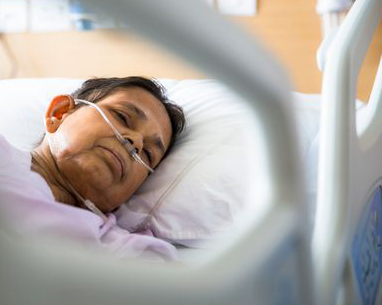Module 6
Working with CALD clients in Palliative care
Online Face to face Remote face to face
Participants completing this course will:
- become aware of the importance of a culturally oriented approach and being culturally competent
- have a better understanding of the cultural issues surrounding palliative care practice with CALD clients and their families
- gain strategies to develop trust and rapport with CALD clients and families
- gain cross-cultural knowledge and skills in intervening with CALD clients and their families in end-of-life care, advance care planning and advance directives, pain management, and death and dying
- gain knowledge and skills necessary to assess and use interpreters more effectively in the palliative care setting.
On completing this course you will have greater insight of the cross-cultural challenges and cultural factors impacting on CALD clients and their families engaging and communicating with service providers; you will also become aware of how to develop rapport and trust with CALD clients and families and gain skills in cross-cultural communication, assessment and intervention with CALD clients in palliative care. Additionally you will gain knowledge and skills working with interpreters in palliative care settings.
E-Learning online self-paced learning = 3.5 hours.
OR
Remote face-to-face training via video conferencing = 2 hours. This is an abridged version facilitated by an educator via Zoom.
This course will give you insights, critical cultural understandings and strategies to work with culturally and linguistically diverse (CALD) clients.
Waitematā District Health Board (WDHB) eCALD® Services produced this course in collaboration with Dr Mandy Parris-Piper and Dr Florry O'Connell (Palliative Care Consultants), with valuable input and support from members of the Waitemata DHB’s Institute for Innovation and Improvement (i3) and Shared Goals of Care Advisory Group (Dr Katie Weatherstone, Dr Moira Camilleri, Peter Groom and Jeanette Bell). We would like to thank Dr Jenny Cartwright for her contribution to proof-read and edit the content.
This course is produced by Waitematā District Health Board (WDHB) eCALD® Services in collaboration with Dr Mandy Parris-Piper (Palliative care clinician), Dr Florry O'Connell, Dr Jenny Cartwright, Victoria Camplin-Welch, and members of Waitemata DHB’s Shared Goals of Care advisory group (Dr Moira Camilleri, Dr Katie Weatherstone, and Peter Groom).
Prerequisites
It is expected that participants enrolling into this course, must have the basic knowledge about working with clients in palliative care settings and have completed the following prerequisite courses.
- Module 1 - Culture and Cultural Competency | Mandatory
- Module 4 - Working with Interpreters | Recommended
- Module 2 - Working with migrant patients | Recommended
- Module 3 - Working with refugee patients | Recommended
This course introduces you to the challenges working with culturally and linguistically diverse (CALD) clients with language barriers, different cultural and religious values and practices, and with limited knowledge about the Western concepts, service and protocols in palliative care.
You will learn ways to accommodate different beliefs and attitudes as well as strategies for managing cross-cultural interactions, treatment, and interventions when working with CALD clients and families during palliative and end-of-life care. It will also provide you skills to work with interpreters in palliative care. The course is intended for anyone working with CALD clients in palliative care in primary, secondary and NGO sectors.
